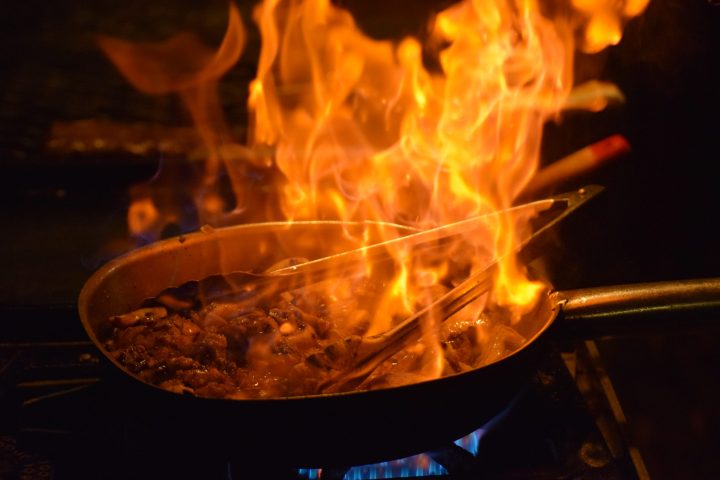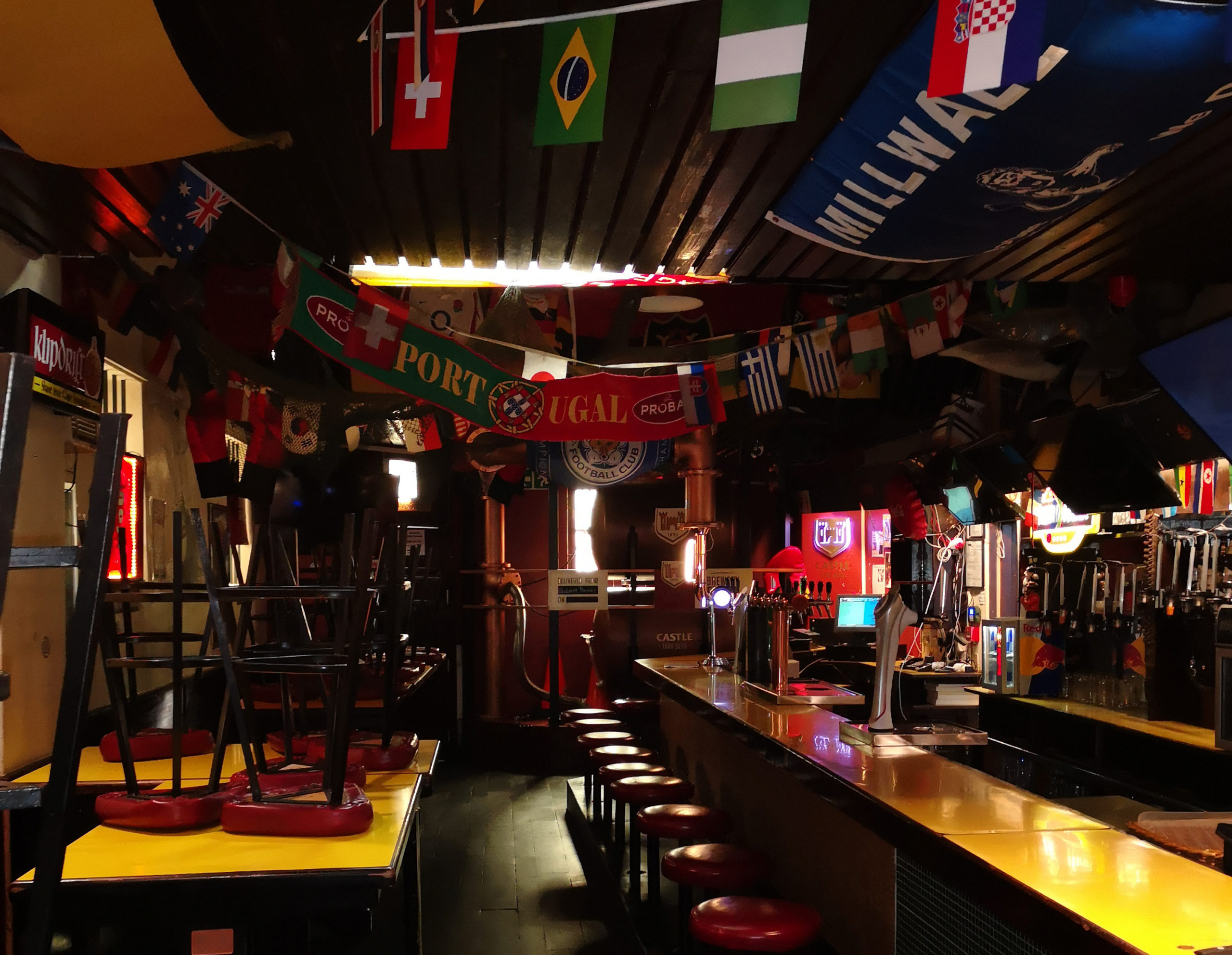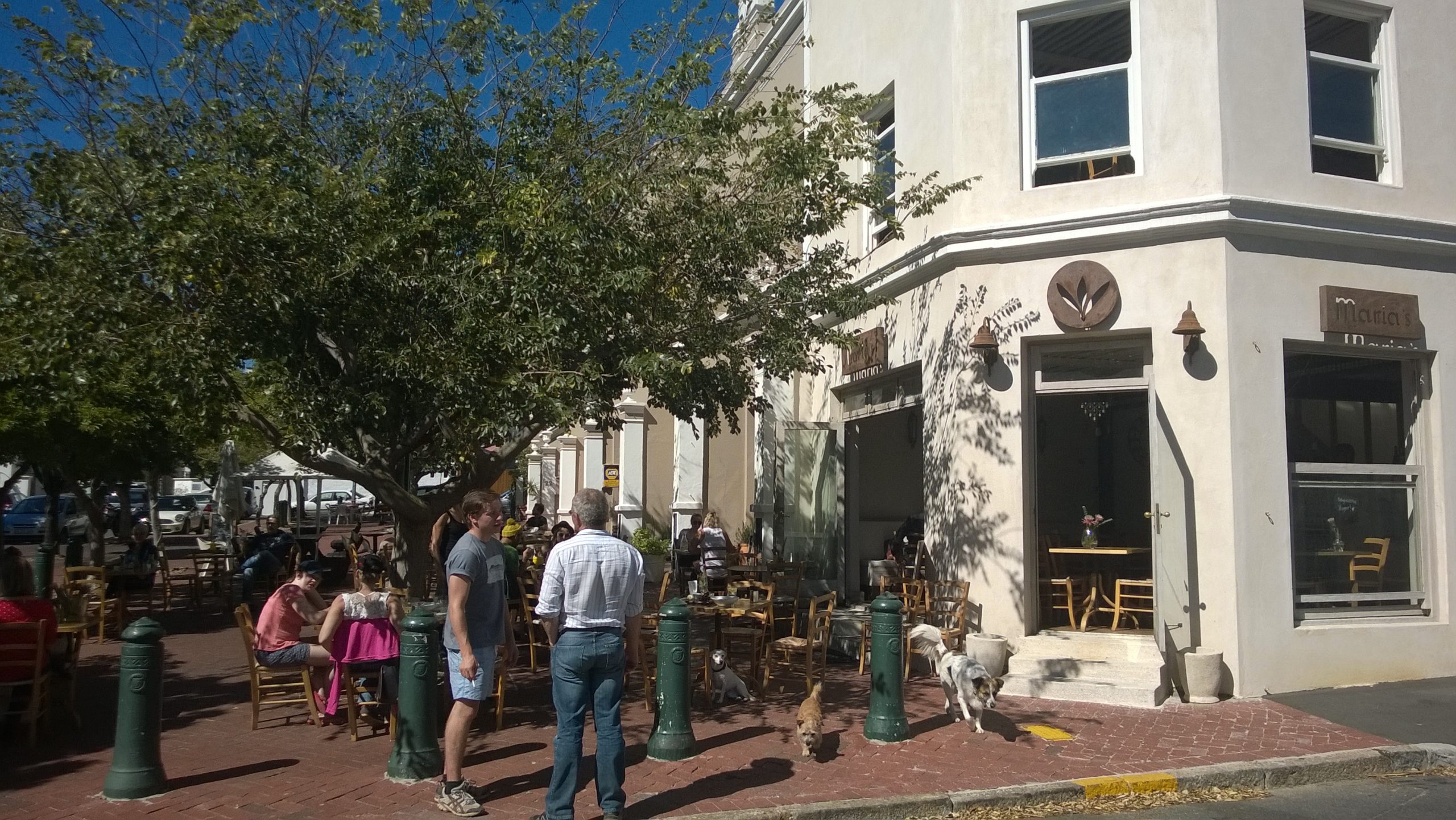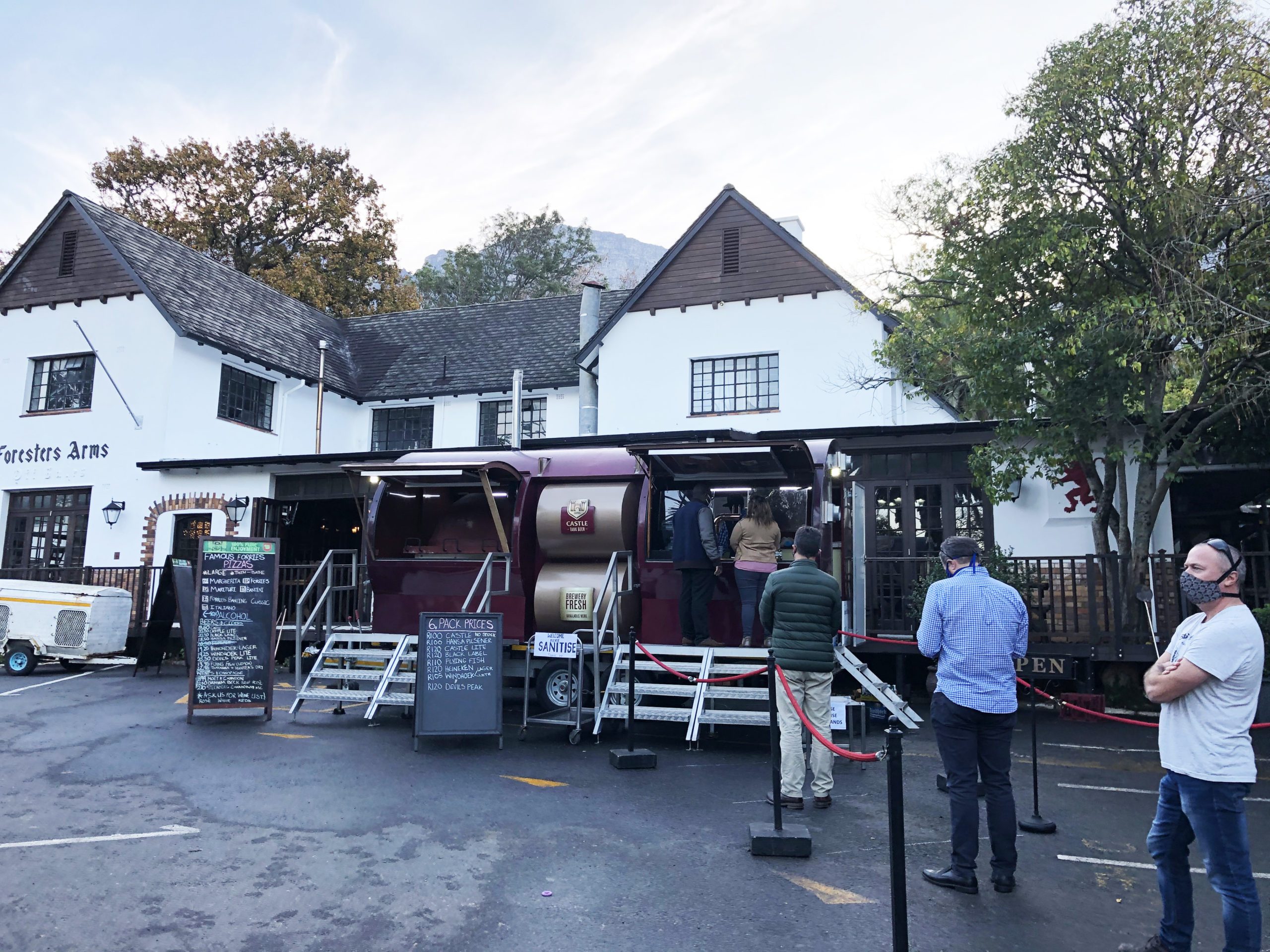TRUE GRIT
Cape Town’s veteran restaurants show resilience in lockdown

In the Cape restaurant world where fickle diners move on to the Next New Thing on a whim, these hardy survivors are still there, for good reason. But even they are not immune to the ravages of Covid-19 and the crisis in which the industry finds itself.
Ninety-two days of lockdown and counting, and the hospitality industry is still riding the coronacoaster of stomach-churning loops and somersaults. It’s hard enough to be in this business even at the best of times, but the past few weeks – which, frankly, feel like months – have seen valiant struggles as restaurants and coffee shops have done everything in their power to keep going, only to admit defeat and announce they are closing their doors for good. It’s an incredibly difficult decision to make and it’s affecting places indiscriminately, from the well-established to the fresh new dreams barely months old.
But what about the old faithfuls, the landmarks, the icons which have been serving Cape Town’s diners for decades, even centuries? Mere age doesn’t guarantee anything, other than solid experience of weathering whatever the world throws at them, and a gritty determination to keep going.
Take Sea Point’s La Perla, veteran of veterans.

‘Restaurants are not set up to be takeaway establishments, therefore, we hope that this is a short-term reality. Restaurants are designed for in-house dining,’ says La Perla owner Baylon Sandri. (Photo: Supplied)
“We would not consider closing. The restaurant has been owned by the same family since opening in 1957 and we will do everything possible to keep it going,” says Baylon Sandri, owner of La Perla. “The most difficult period for restaurants will be the reopening period because it requires a cash input to start up again and, for a variety of reasons, business will be slow for the foreseeable future.”
La Perla has been doing takeaways, which were initially slow but have picked up, said Sandri. It also offers a ready-to-braai selection, an idea based on the initial lockdown period when Capetonians were braaiing regularly. “Besides the takeaways, we have been training staff and working on new dishes for when restaurants are allowed to reopen,” said Sandri.
“Restaurants are not set up to be takeaway establishments, therefore we hope that this is a short-term reality. Restaurants are designed for in-house dining.”
Sandri’s main concern is that travel restrictions continue for a prolonged period, as visitors play a very important role in the economy of the city. “The restaurant industry is going through its most challenging period but it is an opportunity to rethink one’s offering and make changes that will ensure sustainability in the long term,” he commented.
One of the toughest things restaurateurs are facing are the overheads like rent and salaries. Some landlords have been understanding, others not so much. “Many landlords are giving restaurants deals on their rentals. Although this helps, and owning one’s premises also helps, it is far more important that people start going out and frequenting the restaurants again. Established restaurants have brands and a strong brand allows for an easier start-up,” said Sandri, who does not believe this pandemic will herald the end of the industry and is confident that many restaurants will survive. “The full impact of the current crisis is unknown and in the short term we will see many closures. In the long run restaurants will be back.”
With the announcement of yet another set of regulations imminent, amid wild rumours regarding distancing and alcohol sales, Sandri said La Perla will reopen and comply with any conditions imposed. “Our sister restaurant in Stellenbosch is using this opportunity to renovate and hopefully reopen by the end of this year. It is up to each restaurant to make a call on what works for them. We assume that the conditions will include that restaurants may not sell alcohol on-consumption; this makes it difficult for restaurants to operate profitably. We intend to open regardless.”
The story of Nelson’s Eye in the City Bowl began in the late 1960s as a true steakhouse and has had a few owners until Steven Albert took over in 1993.
“Year after year through passion, loyalty and pure dedication, together with the management and the staff that collectively have in excess of 100 years of experience, we have built lasting relationships with our loyal guests, local and international,” said Albert.
“You will very seldom not see me and my wife on duty, all of which I think makes us unique and probably the number one true authentic steakhouse.”
The decision was made to remain closed for now because takeaways will not generate enough income to sustain the establishment or cover operational costs, said Albert.
“How long it can continue like this is hard to tell but the contributing factors of the relationship between the restaurateur with the landlords, creditors and various other trading partners will determine this,” commented manager Brandon Jantjies.
“Some restaurants may not open at all this year – which includes ourselves – depending on demand, and this demand would be governed by the trade in principles of governmental law.”
While Albert’s opinion is that people will definitely come out poorer as the battle against Covid-19 continues, under no circumstances will it destroy the social activity that people require to enjoy the day to day living of life. “The industry – although on fire – will eventually burn its way out over the next 18 months and new and old will reappear,” he said.
Albert said he will not be opening at this time, as he feels the restrictions and risks are far too high. “Realistically we are looking at the earliest mid-October or later to reopen.
“Therefore, we are taking the ‘wait and see approach’ and will be keeping an eye on how things develop.”

Vasco da Gama in Green Point has been known as the Portuguese Embassy since the 1970s. It will remain open, one way or the other, says GM Colin Judin. (Photo: Supplied)
Formerly a hotel, “Vasco building” was built in 1860 from stones from the quarry in Strand Street. In 1972, Vasco Da Gama Taverna, commonly known as “Vasco’s, The Portuguese Embassy”, was established. It was initially a drinking hole for the boisterous sailors and fishermen dividing up the daily catch, then storing it in the walk-in fridge. Vasco’s is famous not only for its peri peri sauce and its blend of Afro/Portuguese cuisine, but for having had a men-only policy until as recently as the year 2000.
The restaurant itself has been dark, chairs stacked up on tables, while a delivery business operates during lockdown. “It was either to do deliveries or close and this was not an option for us,” said Colin Judin (General Manager Vasco Food and Leisure), adding this is not enough to sustain the business the way it was. With much resting on time and money, Judin believes the industry will bounce back.
Still on the rent issue, some older establishments own their buildings which can make things marginally easier. “Yes, I would agree with that sentiment. Older more established restaurants also have a loyal following and a base to work from. Some independents also own their own property as we do,” said Judin.
“For the short term yes, we will see many restaurants close their doors as a result of this crisis and yes, we will see new innovative ideas for social distancing. But social beings we are – and taverns/pubs/eating houses have been around through all the plagues, the viruses and catastrophes of the past – and in my opinion, they will be around as we know them in the future,” continued Judin. His vision is to reopen “one happy customer at a time” and once the regulations allow, Vasco’s will “absolutely” begin trading again.

Maria’s in Dunkley Square has been going since the 1950s. It began as a humble Greek corner café/deli, owned and operated by a proper Greek, named Maria. (Photo: Supplied)
Owner of Maria’s in Dunkley Square, Cleon Romano, said they’d had a good summer season and voluntarily closed on March 19, 2020, a week before the official national lockdown. This meant there were cash reserves to pay staff until the end of that month.
“Some of our suppliers were amazingly supportive by allowing us to pay them in instalments, so that we could pace our cash flow to support our permanent staff, while waiting for UIF compensation. We eventually even managed to get compensation for some of our long-standing serving team. We also returned non-perishable stock to suppliers for refunds.
“Our banks allowed us to defer our loan repayments for three months, so every little bit has helped.”
Maria’s – which began life as a Greek corner café in the 1950s – has not traded at all during this time. “We could last perhaps another month or two. The longer we stay closed, the more difficult it will be to re-establish the organisation,” said co-owner Kate Romano.
“Our biggest worry is that if the industry doesn’t flourish again, the biggest losers will be the front-of-house and serving team. The work that they are so skilled at will totally dry up,” she added.
Consideration has been given to reopening within regulations stipulated by the government but there is huge concern it could be more damaging than remaining closed.
“We are closely watching others attempting to operate, but there are very few successes, and many failures,” said Cleon. The element of uncertainty has prevailed in the Romanos’ minds.
“An older restaurant might have a better chance at bouncing back, as they usually have a loyal and regular following. And if they own their own venue, they would definitely be in a stronger position without having to pay rent, assuming they don’t have a mortgage to pay.
“Depending on how things turn out, we’ll look at trying deliveries and take-outs, and we could tweak our venue to add more of a deli component.”

‘We introduced a mobile trailer placed in front of our front door in our carpark at Forries. The aim was to create a quirky form of drive through look,’ says owner Lorraine Muir. (Photo: Supplied)
With the ever-changing rules, restaurants have had to call upon all their innovative thinking to keep their businesses going. This has led to all sorts of clever and creative ideas to keep customers interested. At the beginning of June, 2020, a mobile trailer was placed in the car park at Foresters Arms – affectionately known to generations of guests as Forries. “The aim was to create a quirky form of drive-through look and feel for our customers – something different for them to feel safe and still be able to enjoy a limited menu of our Forries favourites,” said Lorraine Muir, who has owned the legendary pub and restaurant for 30 years. It’s truly one of the oldest pubs in the country, established in 1852 as an overnight stop for cart horses making their way between Cape Town to Simon’s Town.
Despite the effort, however, continuing in this manner indefinitely is not at all feasible, said Muir. “It is more to keep our name in the forefront of our customers’ minds and for them to look forward to a fabulous reopening celebration.”
The restaurant industry is known for being an extremely competitive and difficult to survive environment and restaurateurs have to work incredibly hard under normal trading conditions, continued Muir. “This pandemic has caused a great many challenges financially and with the potential logistical layouts required going forward, undoubtedly will see even more restaurants at risk of closing.”
Muir said the reopening of Forries will not be considered until they are positive their customers can enjoy and are comfortable with the best they have to offer – and also that it will be financially viable to run the business. “Forries is a destination; the whole experience for the customer is critical to its success. We will therefore be going to great effort to ensure that their experience will be as close to what they had previously.
“That all being said, if one has a large restaurant like Forries open with only 100 customers allowed, it would be most difficult to create the perfect ambience for them to enjoy a convivial time and would not be financially viable.
“I am ever optimistic that we will at some stage return to our former selves – maybe even better.”

Hussar in Rondebosch opened in 1964. (Photo: Supplied)
While all these fine establishments hold special places – and memories – in my heart, Hussar Grill in Rondebosch is particularly notable. It was the first one, and it opened in 1964, the same year I was born. There. Now you know. I’ve eaten at probably all if not most of the other branches in Cape Town over the years, but Rondebosch will always be the first choice, purely for sentimental reasons.
Wooden panelling and wine bottle décor is the Hussar style, but back when it opened it was as an old-school American diner with long shared tables, and knives and forks in metal containers, canteen-style, which catered for university students and professors who would come to the restaurant to enjoy a good meal while they discussed all sorts of scholarly things, shared the group’s chief operating office, Justin Fortune.
As a group, a few restaurants opened for “Call & Collect” and deliveries. “However, we are not renowned for takeaways, and our turnovers have been disappointing. We are considering closing some of the restaurants until we can welcome sit-down guests again,” said Fortune. “Many brands are heavily discounting their products, and we would prefer not to use that strategy as far as possible. Our quality will always be our primary focus and to add value to our guests overall dining experience.
“Franchisees and franchisors are losing tens of thousands of Rands every month and it is not sustainable,” said Fortune. “Most restaurants are not even doing 20% of their regular turnover, and they still have to pay the same fixed overheads as before, so this is really not a feasible model.”
While we are all focusing on the restaurants themselves, the ripples are far-reaching. “It is not only the restaurants that are suffering but our whole supply chain – distribution and agriculture, which is being mortally impaired too,” Fortune pointed out. “Landlords, too, are enduring enormous pressures as their industry is under siege from tenants who are unable to pay anything or only a fraction of their rentals.
“My concern is that if we are not allowed to open soon, with suitable seating capacities, i.e minimum of 60%, to allow for social distancing, we are going to see a catastrophic impact on the restaurant industry as a whole. We employ tens of thousands of people directly, as well as indirectly, and this could have a material impact on the hospitality and tourism industry should restaurants be forced to close permanently.
“We are one of the biggest employers of ‘unskilled labour’ and these employees are suffering. Needless to say, this will have a material impact on unemployment.”
Fortune believes some older restaurants have less debt, and most of them are paid off, allowing them to have reduced financial pressures. “But at the end of the day, we are all in the same boat. I believe the established brands in the communities they serve will survive as they have a loyal following, but it’s going to be a difficult journey ahead for all of us. A journey filled with lots of sweat, blood, and tears.”
Everyone is experiencing the pandemic in a different way. There are good days, okay days, and then those sudden really awful days when it hits like a ton of bricks that nothing will ever be the same again – including eating out.
“I believe the takeaway, call and collect, and the home delivery market is going to boom initially until consumers are comfortable to go out to dine again. Disposable income for most has been eroded, and everyone will be fighting for their piece of the pie. I believe restaurants will become far smaller and compact, to deal with the reduced numbers and to improve their efficiencies,” concluded Fortune. DM/TGIFood

















 Become an Insider
Become an Insider